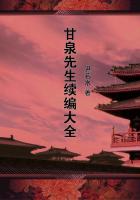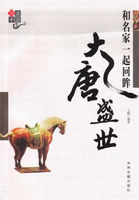Judgement in general is the faculty of thinking the particular as contained under the universal.If the universal (the rule, principle, or law) is given, then the judgement which subsumes the particular under it is determinant.This is so even where such a judgement is transcendental and, as such, provides the conditions a priori in conformity with which alone subsumption under that universal can be effected.If, however, only the particular is given and the universal has to be found for it, then the judgement is simply reflective.
The determinant judgement determines under universal transcendental laws furnished by understanding and is subsumptive only; the law is marked out for it a priori, and it has no need to devise a law for its own guidance to enable it to subordinate the particular in nature to the universal.But there are such manifold forms of nature, so many modifications, as it were, of the universal transcendental concepts of nature, left undetermined by the laws furnished by pure understanding a priori as above mentioned, and for the reason that these laws only touch the general possibility of a nature (as an object of sense), that there must needs also be laws in this behalf.These laws, being empirical, may be contingent as far as the light of our understanding goes, but still, if they are to be called laws (as the concept of a nature requires), they must be regarded as necessary on a principle, unknown though it be to us, of the unity of the manifold.The reflective judgement which is compelled to ascend from the particular in nature to the universal stands, therefore, in need of a principle.This principle it cannot borrow from experience, because what it has to do is to establish just the unity of all empirical principles under higher, though likewise empirical, principles, and thence the possibility of the systematic subordination of higher and lower.Such a transcendental principle, therefore, the reflective judgement can only give as a law from and to itself.It cannot derive it from any other quarter (as it would then be a determinant judgement).Nor can it prescribe it to nature, for reflection on the laws of nature adjusts itself to nature, and not nature to the conditions according to which we strive to obtain a concept of it-a concept that is quite contingent in respect of these conditions.
Now the principle sought can only be this: as universal laws of nature have their ground in our understanding, which prescribes them to nature (though only according to the universal concept of it as nature), particular empirical laws must be regarded, in respect of that which is left undetermined in them by these universal laws, according to a unity such as they would have if an understanding (though it be not ours) had supplied them for the benefit of our cognitive faculties, so as to render possible a system of experience according to particular natural laws.This is not to be taken as implying that such an understanding must be actually assumed (for it is only the reflective judgement which avails itself of this idea as a principle for the purpose of reflection and not for determining anything); but this faculty rather gives by this means a law to itself alone and not to nature.
Now the concept of an object, so far as it contains at the same time the ground of the actuality of this object, is called its end, and the agreement of a thing with that constitution of things which is only possible according to ends, is called the finality of its form.
Accordingly the principle of judgement, in respect of the form of the things of nature under empirical laws generally, is the finality of nature in its multiplicity.In other words, by this concept nature is represented as if an understanding contained the ground of the unity of the manifold of its empirical laws.
The finality of nature is, therefore, a particular a priori concept, which bas its origin solely in the reflective judgement.For we cannot ascribe to the products of nature anything like a reference of nature in them to ends, but we can only make use of this concept to reflect upon them in respect of the nexus of phenomena in nature-a nexus given according to empirical laws.Furthermore, this concept is entirely different from practical finality (in human art or even morals), though it is doubtless thought after this analogy.
V.The Principle of the formal finality of Nature is a transcendental Principle of Judgement.















